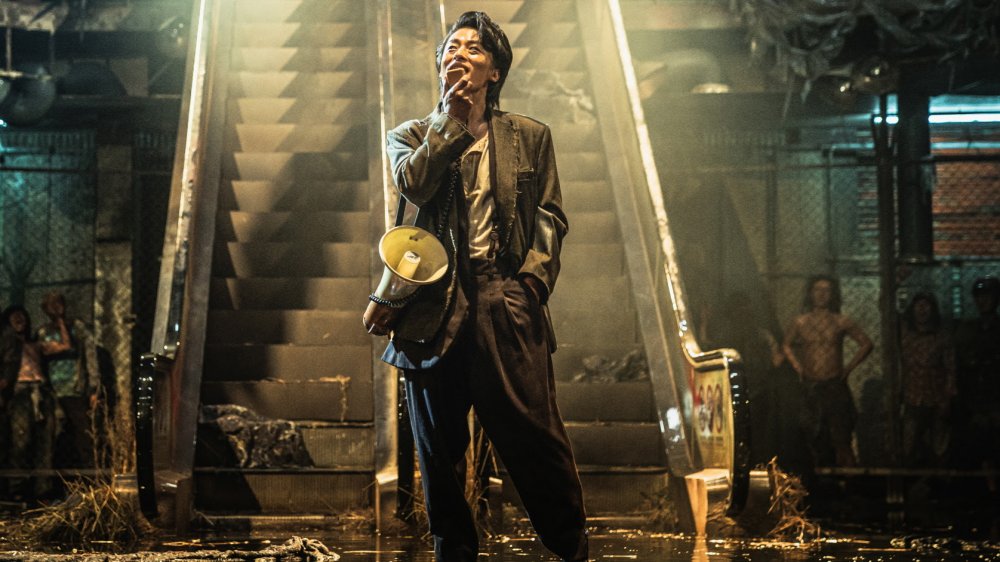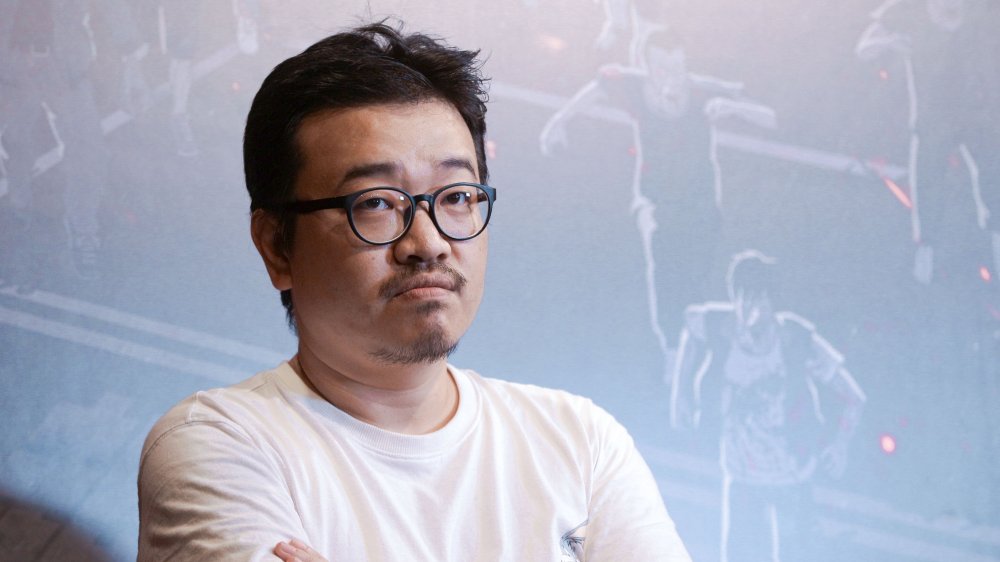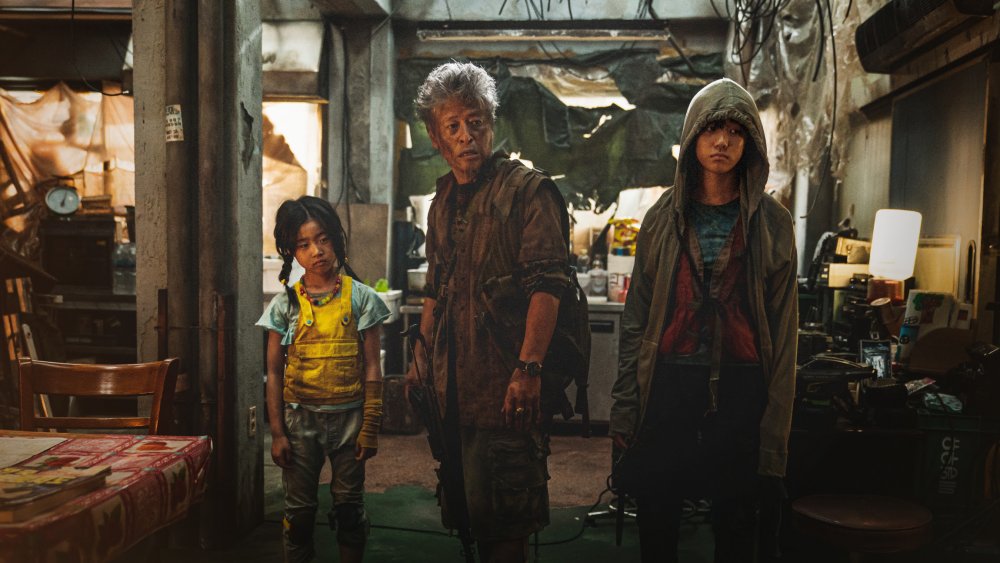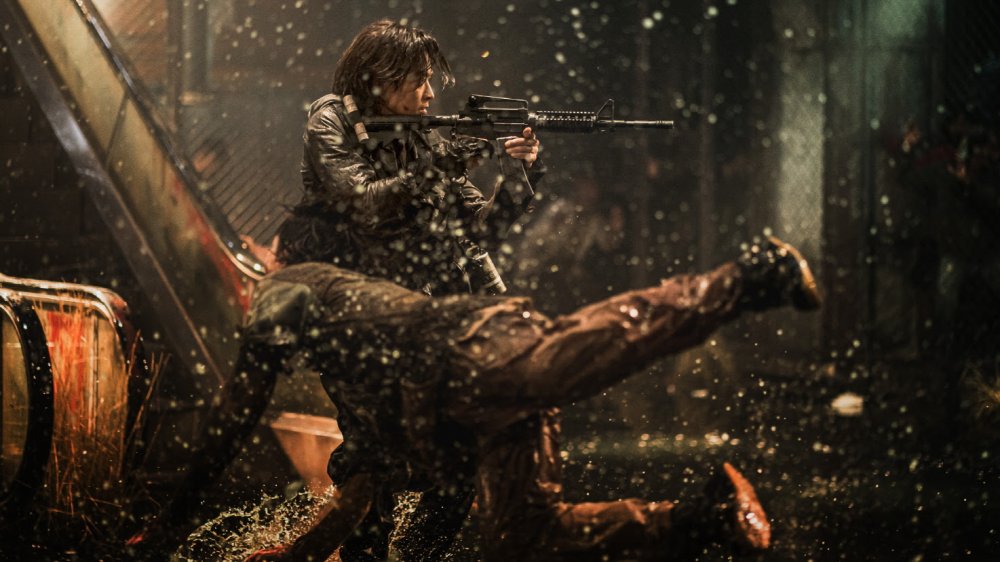Yeon Sang-Ho, Director Of Peninsula - Exclusive Interview
Train to Busan Presents: Peninsula came out at just around the perfect time — western interest in South Korean cinema is at an all time high, as is interest in any apocalypse more interesting than the one we're living through. Peninsula isn't a sequel to Train to Busan per se — they share no characters, but they take place in the same universe.
Four years after zombies took over South Korea, Peninsula finds the country quarantined, with entry forbidden. A group of illegal Korean refugees living in China with nothing to lose head back to their homeland for a treasure hunt, only to find out that people never got out — some run street gangs, others just try to survive.
Looper interviewed Peninsula and Train to Busan director Yeon Sang-Ho via email, with translation courtesy of his team in Korea. He talked to us about his transition from animation to live action, as well as what makes Peninsula different from Train to Busan.
Early career, Train to Busan, and working on Peninsula
You made your name in animation before Train to Busan. What made you jump to live action, and how has your background influenced your filmmaking?
Korea's theater animation industry is very small. While working on King of Pigs and The Fake, I received suggestions for live-actions films from many people. At first, I refused them because I had never thought to go in that direction. However, because I knew the limitations of the theater animation industry in Korea, I decided to give live-action films a try.
Even though animation and live-action films work very differently, the basics of movie-making are very similar. In addition, the use of CGI in movies is becoming more popular today. I felt that that part of making movies was rather similar to how animation movies are produced.
Peninsula is almost an entirely different genre than Train to Busan — far more action/adventure than outright horror. What was behind that choice?
When Train to Busan released in Korea, many of my friends told me their children enjoyed watching the movie. Previously, when I worked in more intense animation movies, I never expected such a young audience.
While working on Peninsula, I wanted to create a movie that could be enjoyed by the entire family.
Did you find it difficult making a follow-up to such a successful movie?
I considered Peninsula a movie of a completely different color compared to Train to Busan. I threw away the notion of creating a sequel to Train to Busan, and told myself I was creating a completely new movie. At the same time, it was a movie that had not been created before, so we had to come up with new production solutions in order to create scenes like the CGI car chase scene or the depiction of a ruined Korea.
Those parts felt like a new challenge to me.
What was your favorite moment on the set of Peninsula?
The set of Peninsula was always a continual experience of new work. Going to the sets that the arts team had created was always exciting, like going to an amusement park. Being able to see in person what was conceptualized was very enjoyable.
Western audiences
There's a lot of English in Peninsula, including the prologue. There's also several references western audiences would get, including the money being American and a reference to pitcher Chan Ho Park. What was your goal in integrating so much English?
The English lines were not included in the movie to appeal to the global market. Based on the context of the movie, it was a natural inclusion. If there were different codes that could be naturally understood by the Western world, then I consider that to be fortuitous coincidence.
The success of Parasite has seen increased interest from the west in South Korean cinema. Have you personally noticed any change in audience, reception, filmmaking choices, or other notable ways?
There does appear to be much interest from the west. Even looking at the number of Netflix Korean content produced in Korea, I definitely feel that the international response to Korean dramas and movies has changed.
Much of your work critiques capitalism or at least business culture. Is this meant to be reflective of ideas like Spoon class theory/Hell Joseon or the world at large?
In any society, I think there are always things that need to be improved. And within it, with hope and despair, there is essential human suffering that has to exist. As a movie director, I observe that and get inspired by it.
Infleunces, what the future holds, and what audiences should take away
What other horror/zombie movies/shows have influenced your work?
I really liked movies like David Cronenberg's The Fly and Videodrome as well as Peter Jackson's Bad Taste and Dead Alive. John Carpenter's The Thing and Kiyoshi Kurosawa's Cure or Pulse are movies I like.
What made me fall in love with zombie movies was Jack Snyder's remake of George Romero's Dawn Of The Dead.
Are there any genres you haven't worked in yet that you're itching to do so?
I am currently thinking about Korean sci-fi films. I'm also thinking about a new type of occult thriller. And I still believe in the possibility of animation.
I feel like I am just starting to make movies, so I want to try many different things.
What do you want the audience to take away from Peninsula?
First of all, I would like for Peninsula to be an entertaining movie. After not having been able to go see a movie for a long time, I hope you will be able to enjoy the film on the big screen. And I hope when you finish the movie, you will continue to talk about it after leaving the theater.



